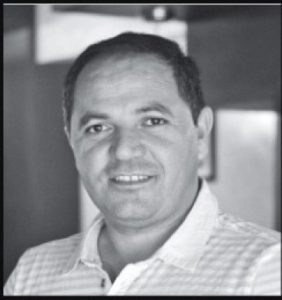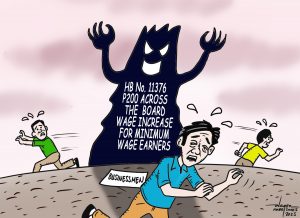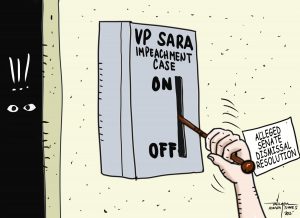
CONSTANT change and disruption characterize the twenty-first century. So much is changing so quickly in our culture. One of the things that is shifting dramatically is how deeply we seem to hate each other.
Elections and the Coronavirus have made that trend worse. The world witnessed a wave of violent protests, ranging from Myanmar to the United States and from Hong Kong to France, Iraq, Africa, Libya, and Latin America, to name just a few.
At the same time, many societies have faced challenges related to individuals and groups engaged in violent acts and other types of extremist activities.
The most prominent examples include the increase of hate crimes against Asian–Americans over the last year that has focused attention on an ongoing prejudice against this group. Hate crimes against Asian-Americans have been skyrocketing in the United States since the Coronavirus pandemic. Stop AAPI Hate, a reporting center for such incidents in the US, estimates that more than 3800 anti-Asian bias incidents have occurred since last year when the pandemic began, and these incidents include everything from verbal harassment to physical attacks.
The shootings at the three Atlanta area spas resulted in the deaths of eight people, six of whom were Asian women. Granted, spas tend to be staffed by workers from a few Asian countries, but these are just a few examples.
Many on the left assign responsibility to Donald Trump‘s rhetoric about the Covid-19 crisis, which often blamed the Chinese government for the way it handled the virus. The other reason contributing to the prejudice against Asians may be the economic war going on between the U.S and China because this competition in general has cast Chinese, and other Asian-Americans by association, as potential enemies.
There is no doubt that the current world system is not working and has collapsed. We are living in a disordered world. In theory the system is based on human rights, social justice, equality, democracy, and rule of law.
In reality, this interdependence produces the most horrible stories. More of this kind of abuse narrative may be on the horizon because our world is dominated by a lawless and an illegal world system. We have also witnessed the rapid rise of emerging economies like China and India resulting in a shift in global economic power.
We need to reject and resist the idea that anti-Asian hatred and violence are caused by President Donald Trump, are unique to this moment in time, or are solely tied to the Coronavirus.
Rather, I would argue that, due to rising social inequalities and corresponding power asymmetries both internationally and domestically, the experience of relative deprivation recently has likely become one of the key factors driving violent extremism across groups, cultures, and races.
If a nation has citizens who are underdeveloped by comparison to the norm, corrupt in their means to the end of “having,” impoverished, or even starving, they will look for someone to blame.
When no one comes to their aid, they will rise up themselves or follow someone who directs their anger toward a target group, such as during World War II when Hitler used the Germans’ frustration in the aftermath of WWI and their economic depression to kindle anger against and hatred of the Jews.
Politicians are benefiting from social and political instability, economic crises, and social inequality that are driving people to extremism. This is not to say that the material causes racism and hate alone; however, concerns about social, demographic, and cultural changes as well as anxiety about the complexity of the modern world figure into the uptick in racism.
For example, in the United States many Whites feel they are becoming a minority within their homeland and that many of their needs are not being met. Similarly, many left wing Americans think that Asians take too many jobs or most of the slots at elite educational institutions.
So if someone is hungry for power or attention, she or he often becomes angry toward whoever or whatever prevents that person from obtaining such control or visibility. When an individual is struggling, whether related to problems at work, low self-esteem, or conflicts in relationships, etc., that person feels much better by funneling negative energy into blaming someone else rather than by confronting that individual’s own role in his or her problems.
Many people join hate groups because the camaraderie allows them to funnel the blame for all of their problems into another group of people while being supported by a like minded cadre who share their beliefs and give them a sense of belonging.
(Dr. Aland Mizell is President of the MCI and a regular contributor to Mindanao Times. You may email the author at:aland_mizell2@hotmail.com)



